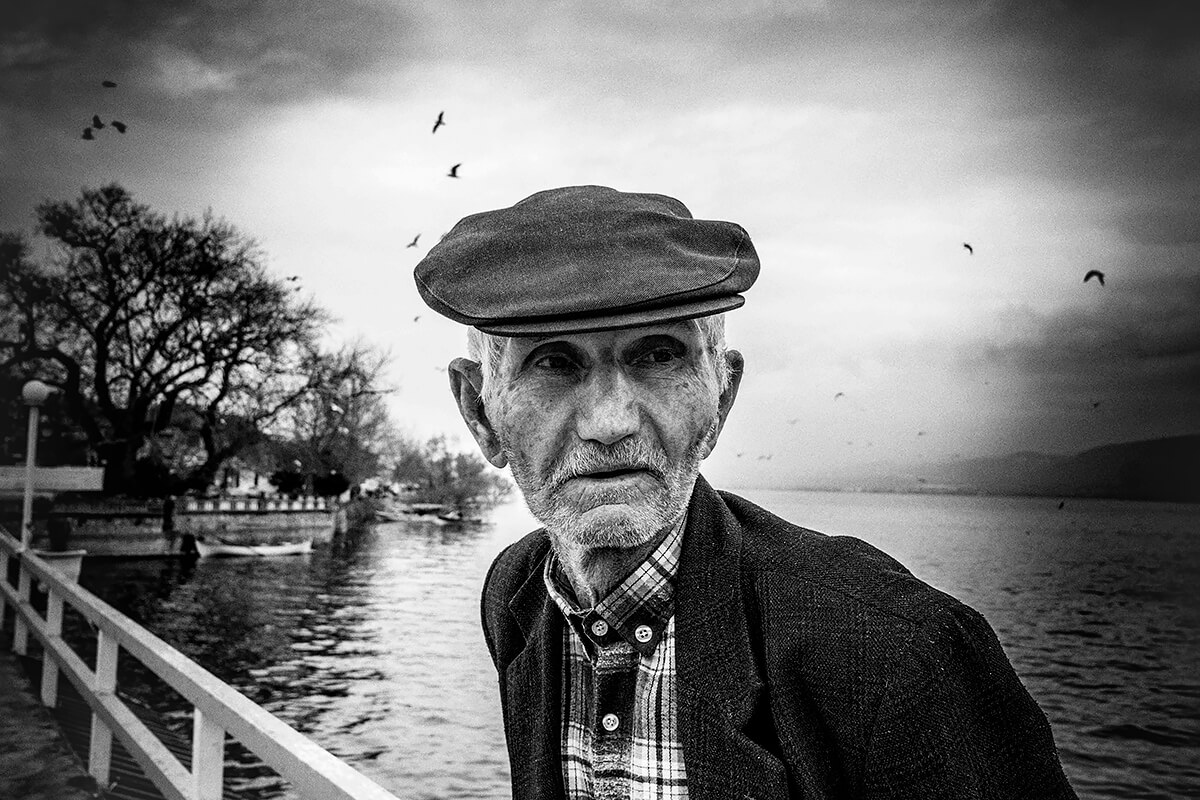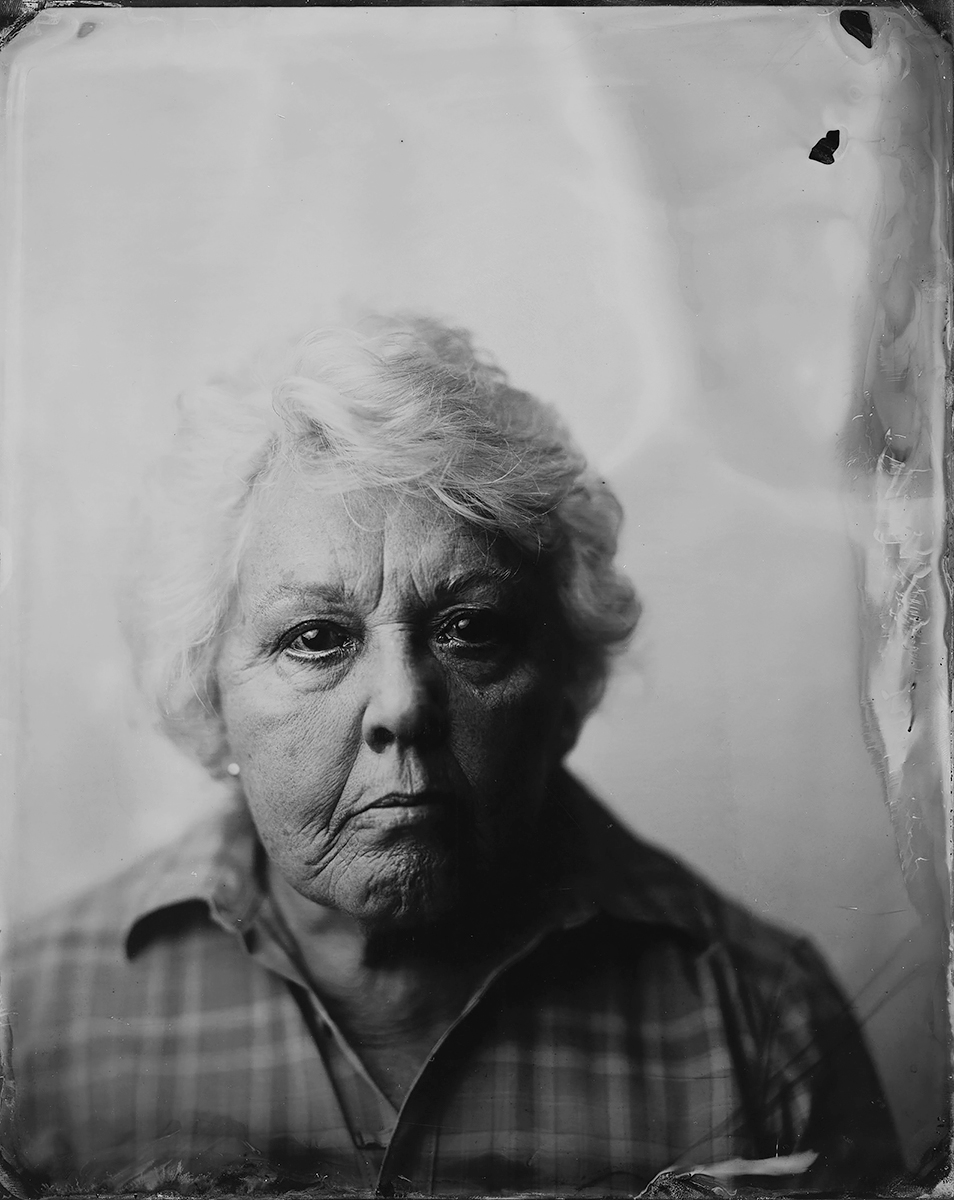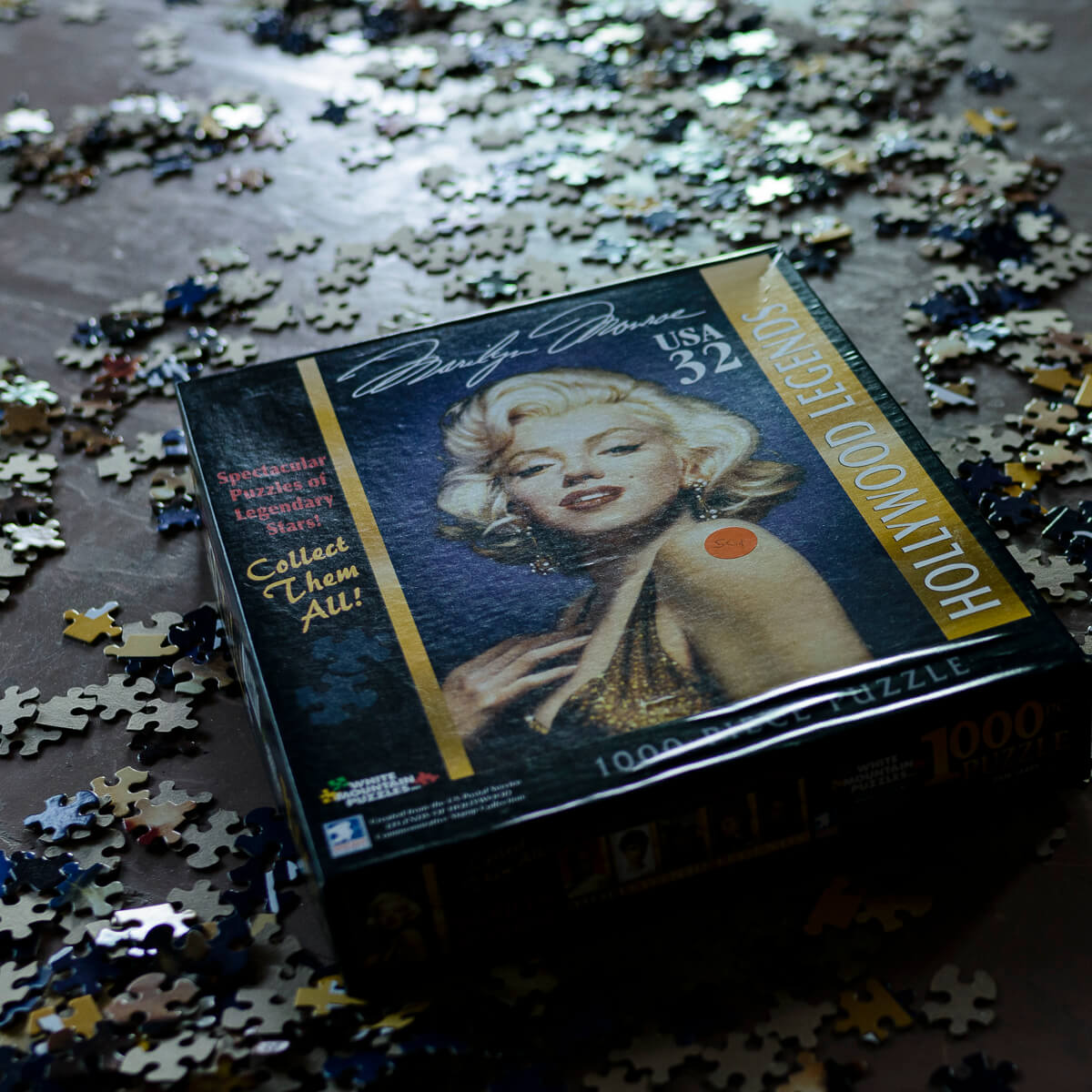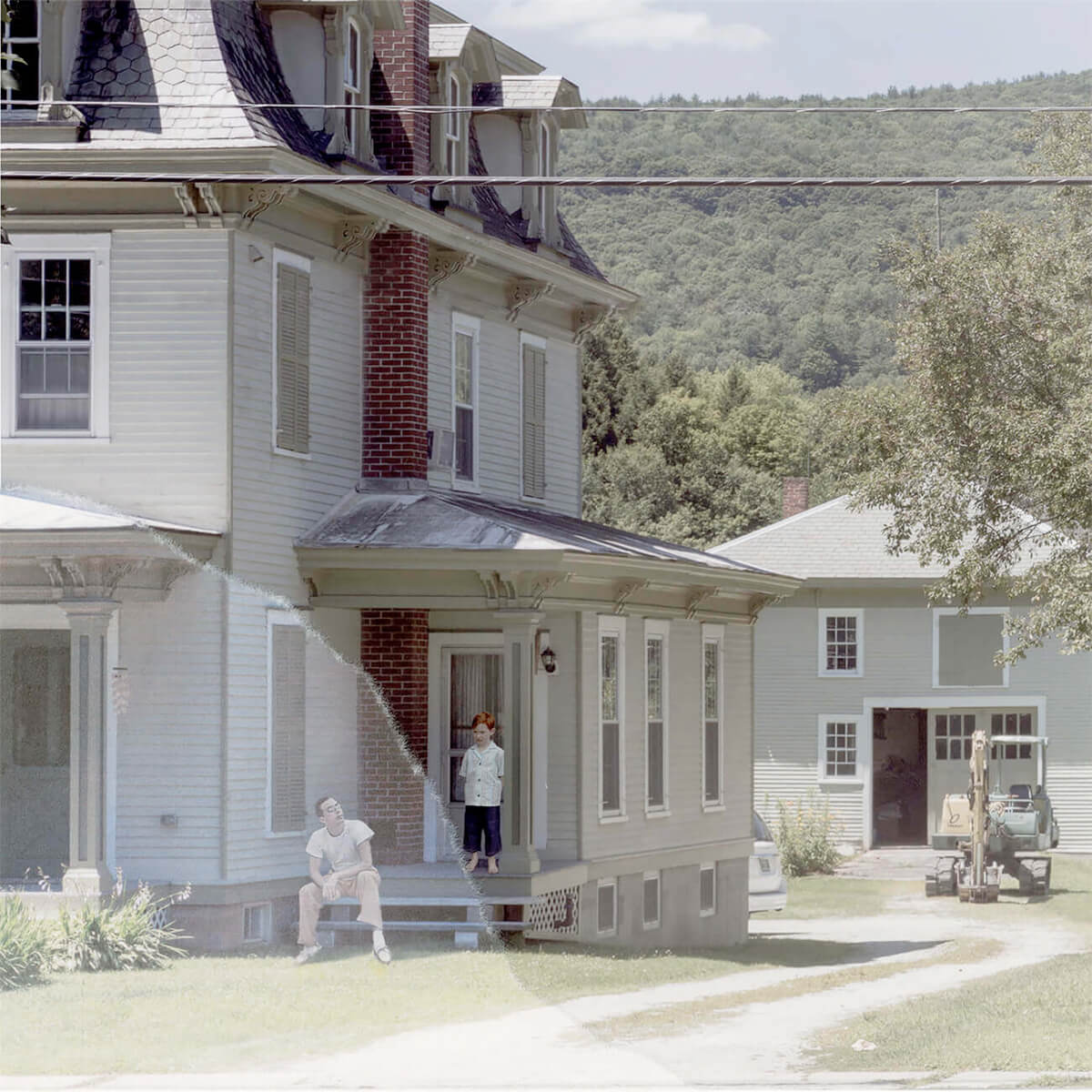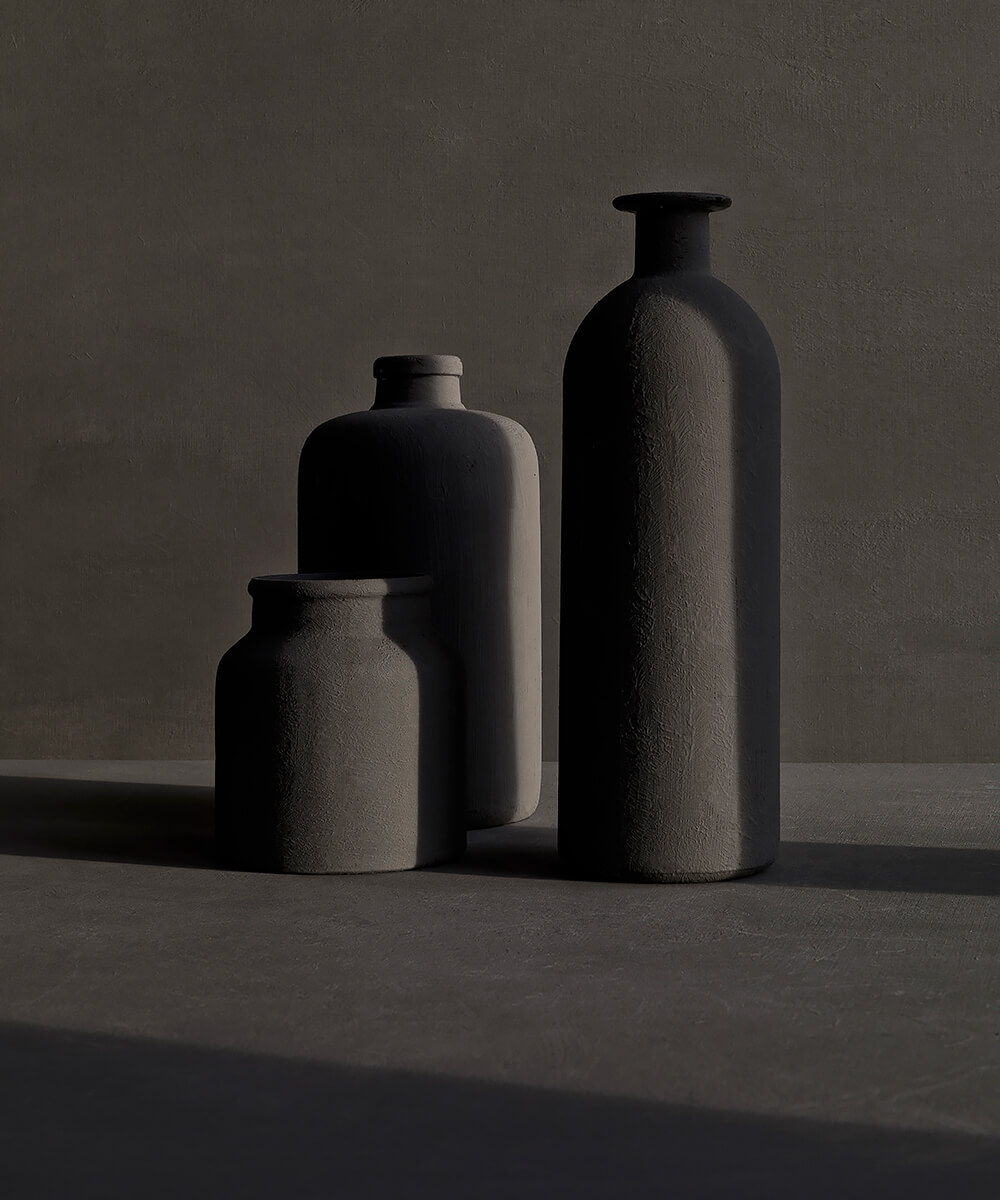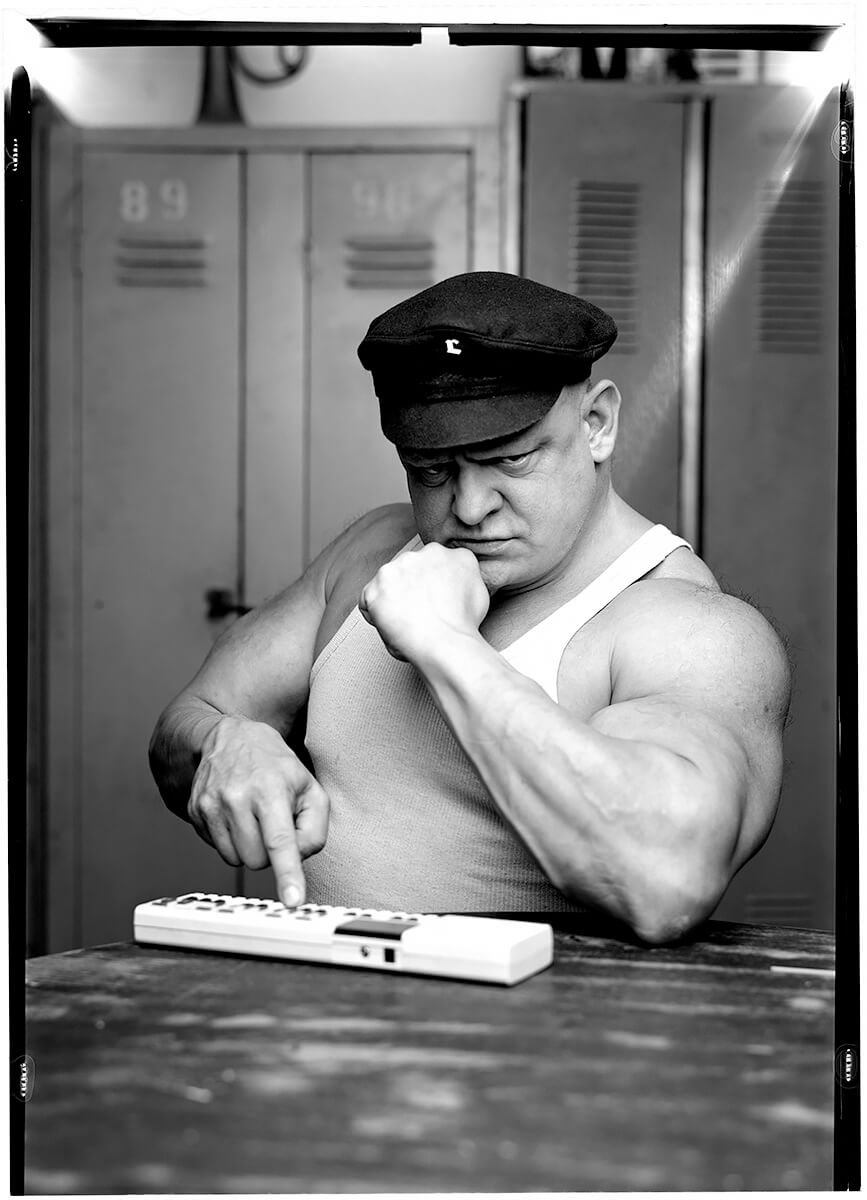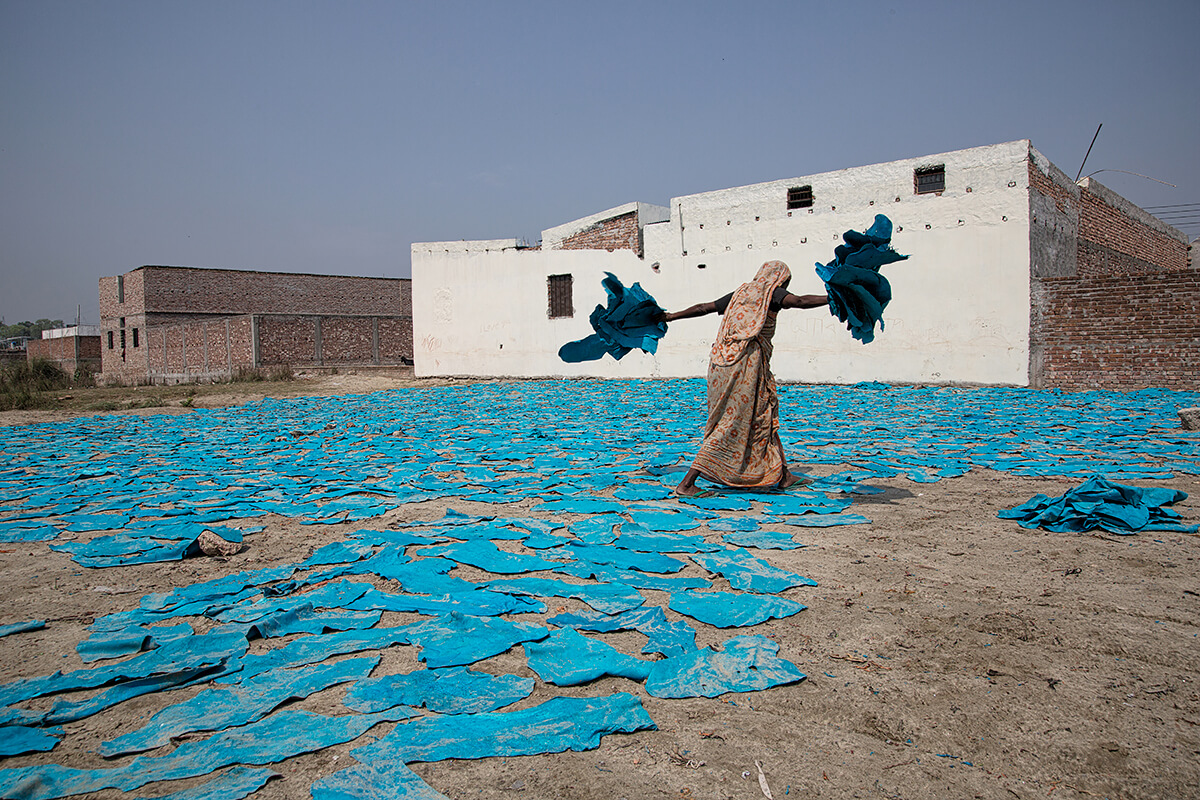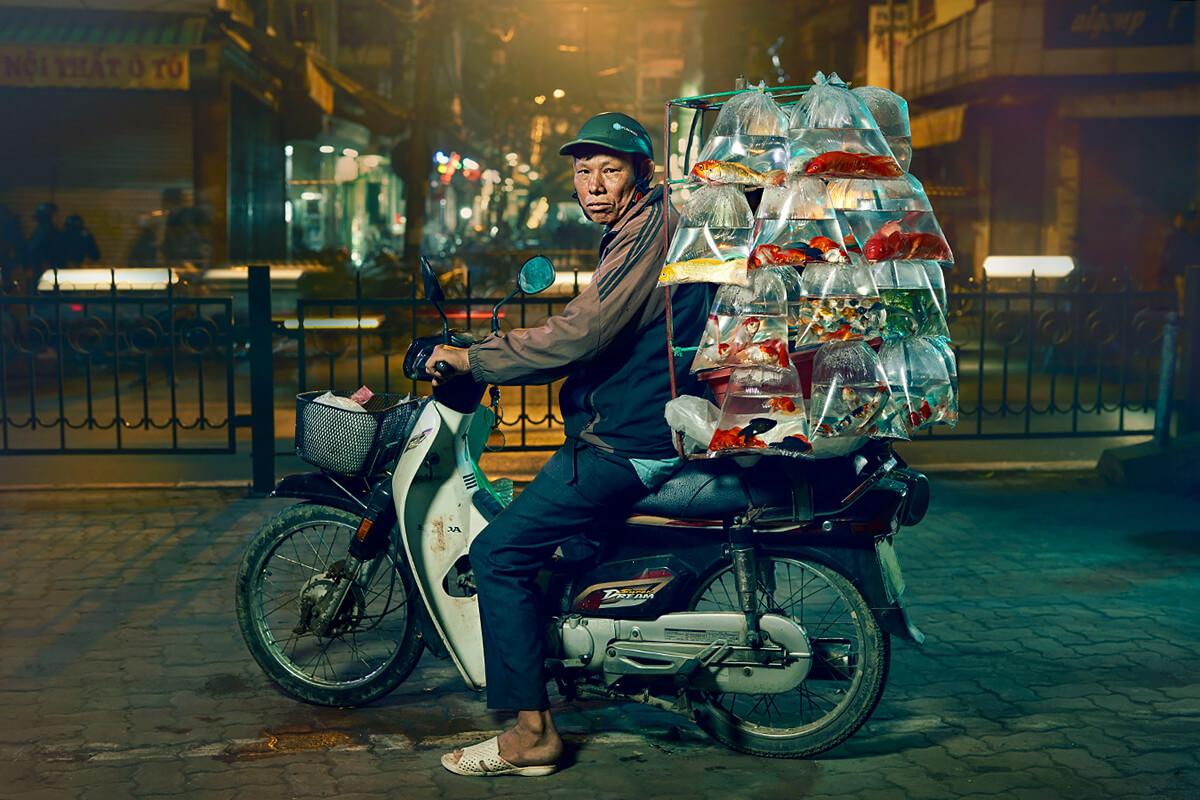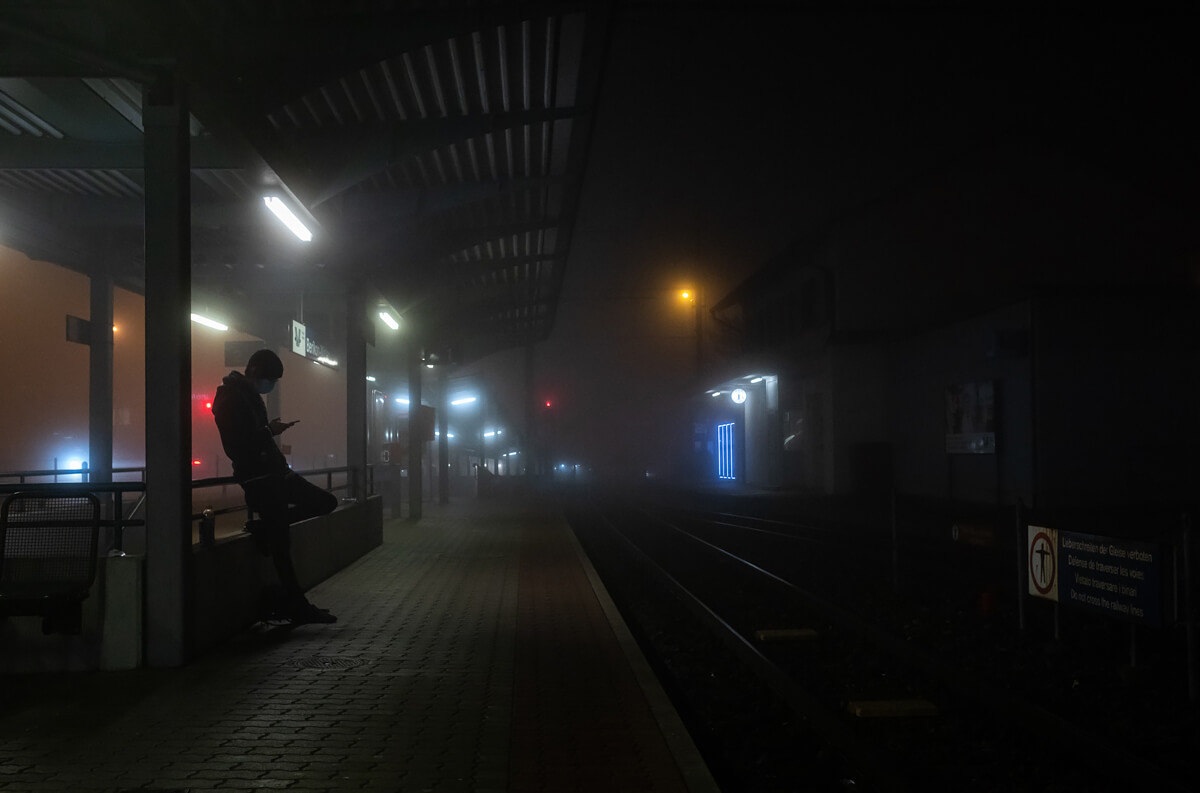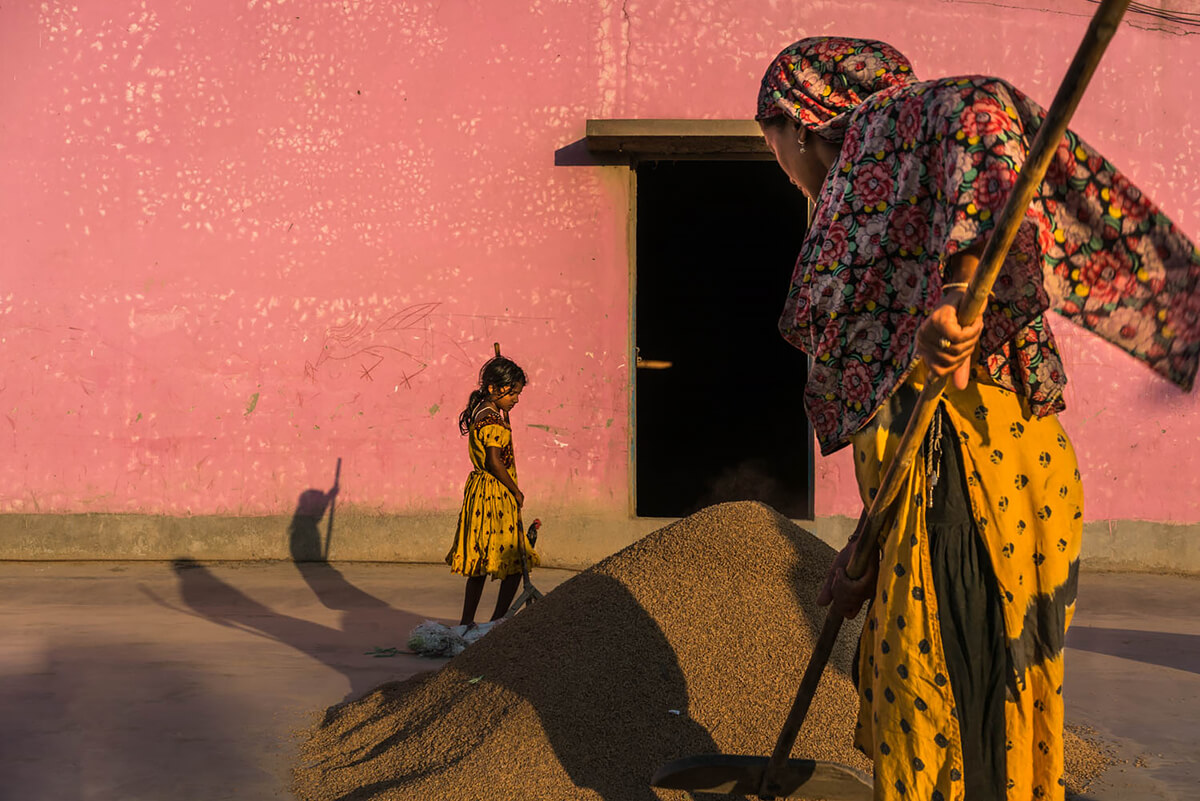What better way to improve your own work than to be inspired by others? I am absolutely convinced that discovering new portfolios on a regular basis helps educate your eye and have a better understanding of the possibilities that photography offers. Contemplating amazing images, in addition to being a pleasure, is a very good way to develop your 'photographic eye', that little extra thing that will make your photos stand out. Each month we continue to discover incredible work from photographers that live and travel all around the world. Here is a selection of some incredible images of modern photographers for this month of June 2021 you can get some creative inspiration from.
Habip Koçak
Turkey
I was born in 1969 in Tarsus/Turkey. I graduated from Çukurova University, Department of Mathematics. In 1995, I started working as a Research Assistant at Marmara University. After 25 years, I resigned and moved to England. I am currently working as a Senior Researcher at the Oxford Center of Technology and Development.
In photography, I try to produce Documentary Photography, which I think is in the middle of life. Recently, I produced projects named "Obscure", "Kakava - Behind the Scene" and "I Can't Breathe". As of October 2020, my book titled "Unsuzler", which includes street portraits I produced in the previous years has been published.
I am currently a member of RPS (Royal Photographic Society), OPS (Oxford Photographic Society) and IFSAK.
Madison Casagranda
United States
Madison Casagranda is a recent graduate from Brigham Young University where she studied photography and art education. She works primarily with alternative photographic processes in the darkroom, and enjoys the hands-on nature of these processes. Her goal is to communicate culturally and historically significant concepts and connect us to the past in order to address challenges in the present day. Her photography most often centers around her personal and family history, United States history, anti racism, and amplifying voices from marginalized communities. She has had two solo exhibitions at BYU and her work has been included in many group exhibitions across the country, including at The Springville Museum of Art, The Southeast Center for Photography, and The Praxis Gallery. Her work has been published in Communication Arts and she is currently working on self publishing a book of her series, The Black Stories Project.
Norm Diamond
United States
Norm Diamond spent thirty years as an interventional radiologist in Dallas, Texas. Treating severely ill and injured patients on a daily basis had a profound effect on him, which he came to fully understand when he retired and began his second career as a fine art photographer. Mentored by Cig Harvey since 2013, he began making work focused on themes of memory, loss, and isolation. In his first major project, What Is Left Behind - Stories from Estate Sales, he visited several hundred estate sales searching for and photographing objects left by one generation for the next. Daylight Books published this work as a monograph in 2017.
In his next series, Doug's Gym, he chronicled the last six months of a dilapidated, yet beautiful old gym in downtown Dallas. It was owned by 87-year-old Doug Eidd, who had run the gym since 1962. Both he and the gym came from a bygone era never to be seen again. Kehrer Verlag published Doug's Gym in 2020.
Diamond has now returned to an old project, Dark Planet. It reflects his worldview drawn from his experiences as a physician, his family background, and current events. The images reflect the same themes he has photographed for his two previous projects, but they are not tethered to specific locations or settings.
Diamond was named a finalist in the Photolucida Critical Mass competitions of 2015, 2016, 2018, 2019, and 2020. The Afterimage Gallery in Dallas and the Cumberland Gallery in Nashville have hosted solo shows of his work. His prints are in the hands of private collectors and have also been shown in multiple galleries and museums including Ogden Museum of Southern Art, Griffin Museum of Photography, Masur Museum of Art, Houston Center for Photography, Center for Fine Art Photography, and Center for Photographic Art.
Diana Cheren Nygren
United States
Diana Cheren Nygren is a fine art photographer from Boston, Massachusetts. Her work explores the visual character of place defined through physical environment and weather. Place has implications for our experience of the world, and reveals hints about the culture around it. Her photographs address serious social questions through a blend of documentary practice, invention, and humor.
Diana was trained as an art historian with a focus on modern and contemporary art, and the relationship of artistic production to its socio-political context. Her emphasis on careful composition in her photographic work, as well as her subject matter, reflects this training. Her work as a photographer is the culmination of a life-long investment in the power of art and visual culture to shape and influence social change.
Her project When the Trees are Gone has been featured in Dek Unu Mag, Square Magazine, Photonews, Domus Magazine online, Cities Magazine, and iLeGaLiT, and won Best In Show in the exhibition Nurture/Nature juried by photographer Laura McPhee, the Grand Prize in Photography from Art Saves Humanity, Discovery of the Year in the 2020 Tokyo International Foto Awards, 2nd place in Fine Art/Collage in the 2020 International Photo Awards, silver in Fine Art/Collage in the Budapest International Foto Awards, bronze in Fine Art/Digitally Enhanced in the 2020 Prix de la Photographie, was longlisted for the Hopper Prize and the BBA Photography Prize, and was a finalist for Fresh2020 and Urban2020 and a Merit Winner in the 2020 Rfotofolio Selections.
Hugo Thomassen
The Netherlands
In his search for shadow, Hugo Thomassen found light. It is not the play of light that intrigues, but the richness of shadow.
The bottles are what they are, yet they inadvertently evoke associations. Are we looking at a nocturnal cityscape with figures? Are we witnessing a chance encounter, a moment frozen in time, or simply an elegant composition with one or more bottles as the photographic subject? The bottle as a shape.
In actual fact, the bottle has been constructed down in minute detail. Although the associations may suggest coincidence, the composition itself makes no such assumption. After all, it was built layer by layer. Painstakingly so. It is rich in its simplicity. No expense is spared. Each line is deliberate, considered. So much is expressed through so little.
Without warning, this piece sends you soaring into the void - at least it had that effect on me. The void in which there is no time, and the severity of silence reigns. From a compositional standpoint, you have no reference point for space and time. As such, you go on your instincts and create a story yourself. Or you experience it in a meditative sense.
What am I feeling? Is it abandonment, bottomless loneliness? Or am I experiencing silence, light, and intimacy? The image is poetic, still, melancholy, and harmonious. Reassurance emanates from the strict imposition of order. Coincidence is out of the question.
The meaning of the work is hidden in the order that it projects. The interplay of lines formed by light and shadows never becomes a labyrinth, instead forming a guide pointing out the right direction. The photo has a reassuring effect on me which does not indicate a lack of thought. It makes me wander off in my mind’s eye while deciding my own perspective.
This piece puts me outside of time. I can find no links to a memory, something which photography usually excels at. The image is new, though I believe I see a shade of art history through which the influence of Giorgio de Chirico, Morandi, and Night Shadows by Edward Hopper subtly shine through.
The photograph distils the bottle to its purest form. It lays bare its essence. An idea. Is it truth that we see? Reality being exposed? Or are these simply shadows created by shapes? It is this that Thomassen plays with. Is it a single photograph or a picture composed of several images, a multitude of shots? In a sense, the photographic image is attempting to transcend the flatness of the paper.
Photography is the means by which Thomassen explores the world. He exposes order in chaos or reveals an event through an ordering. He is the author of a visual story. His work is a narrative without words. It is excitement without something taking place. It represents an ode to emptiness, silence, and form. The bottle as the bearer of meaning.
Everything has been translated into a language that one does not necessarily need to understand, but that one feels. He finds beauty in the composition of things, of objects. Naturally, a bottle is just a bottle, but in a composition and in relation to other bottles, by sheer coincidence a story is created.
Thomassen brings light and shadow as nuances to that composition. He does not impose hierarchy onto the image. The background, the negative space, is just as important as the bottle. This piece is so streamlined that there are no secondary subjects. Light and shadow are of equal importance, because they need one another.
Hugo Thomassen provides a context to the bottles. It is up to the viewer to make a story out of them - or not, of course. Because what is simply a charming image to one may appear to another as a story about existence and appearances.
Ludo Diels
Arne Wesenberg
Germany
Arne Wesenberg (born 1974 in Stralsund, Germany) studied communications design at the Werkkunstschule Lübeck, Germany and history of art in Hamburg, Germany. Between 2010 and 2017, he has been working on his photography project "Im UnRuhestand" ("The Unretired"). From 2010 to 2015 he went to photography classes at the Ostkreuzschule - School for Photography and Design in Berlin. He photographs exclusively with a large format analog camera. The book "Im UnRuhestand" was awarded bronze at the German Photo Book Award 2018/19.
Erberto Zani
Italy
Erberto Zani (Parma, Italy, 1978) is a journalist and documentary photographer specializes in human rights issues.
Graduate at school of applied Arts Paolo Toschi in graphic design, after the studies in History of Art at University of Parma he worked as photographer in advertisement sector (1998-2004). Journalist and photographer for the Newspaper Gazzetta di Parma (2004-2007) and editor in chief for some local magazines, he becomes freelance in 2008. During these years he documented the destruction created by the earthquake in Haiti, the climate crises in Sahel, the Maha Kumbh Mela in India, the daily life inside the ship breaking yards in Bangladesh, the exodus of Rohingyafrom Myanmar, the refugee camps in Lebanon, Greece and Uganda, the effects of the war in Marawi city / Philippines. Actually Zani is working on two long term documentary projects, both around the world: "Dark World", about the illegal mineral's extraction, and "Survivors", about acid attack victims.
Awarded in several international contests, his images are published on several books and dozens of international magazines. He lives in Basel, Switzerland.
Jon Enoch
United Kingdom
Jon Enoch discovered his love of photography on a round-the-world-trip, which he won in a competition while in his first year of university, studying geography. He bought a simple point-and-shoot camera and discovered a passion and a skill for portrait and lifestyle photography - looking for an unusual shot, rather than a standard tourist snap.
He returned to university to complete his degree in geography, but was still out every weekend working on his own portraiture projects. After he left university, he did a one year course in newspaper photography and began a career in press photography.
Jon started developing his bold portraiture style while freelancing at The Times, and now specialises in photo shoots for CEOs, sportspeople and celebrities, as well as advertising and lifestyle shoots.
Describing his work as 'bold and uncomplicated', Jon loves playing with light, and how it affects the mood of the work.
Jon still works on his own personal projects, and his 'Bikes of Hanoi' set of street images of moped delivery drivers earned him numerous industry accolades and awards, including the, Sony World Photography Awards 2020, Smithsonian Grand Prize Winner 2020, Portraits of Humanity 2020; Lens Culture Portrait Prize 2020 and a gold at the Prix de la Photographie Paris.
Ulka Chauhan
India
Street and documentary photographer Ulka Chauhan grew up in Mumbai, finished high school in Switzerland, college in Boston and lived and worked in New York and South Africa before anchoring herself in Zurich and Mumbai. These varied geographies come together to inform her work and shape her visual language.
While the terrain of her photographic practice is vast, a large body of Ulka's images chronicles life across Switzerland and India. She moves with an ease between the two starkly different worlds, seeing them with 'fresh eyes' every time she visits. Ulka uses her own voice to tell stories inspired by the two diverse spaces she occupies.
Time and space are bystanders in her images as she moves literally and metaphorically between the linear structured world of Switzerland and the cyclical and chaotic world of India.
Her style morphs fluidly with her choice of subject. Using a minimalist narrative, there is an artistic reduction to her compositions as she focuses on just the essential elements to make us look at old things in new ways.
Ulka Chauhan is the sum of all her parts; being rooted on two grounds contouring her identity and compassionate world view.
Her camera is the lens through which she sees the world, and in the process, herself.
Anne Launcelott
England/Canada
Anne is a self-taught photographer who began photographing her children as they were growing up in B&W. She would put her babies to bed, set up the darkroom in the apartment bathroom and print well into the wee hours. She went digital, and thus began shooting in colour, in 2010 when darkroom supplies and film were no longer available.
Her first workshop was with the noted New York street photographer Jay Maisel who has influenced her use of colour, light and gesture. Her first photography expedition was with Steve McCurry in 2012 to Myanmar. On this trip she discovered her passion for travelling back in time to countries where the culture is so different from her own.
People and the themes of everyday life are Anne's inspiration and she wants to draw the viewer in by telling a story through her imagery. Her preference is to explore the streets alone, camera in hand, in order to get into a Zen frame of mind. Walking, observing, interacting, and photographing... pure joy!
